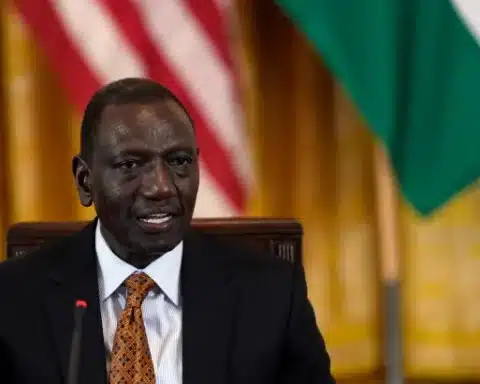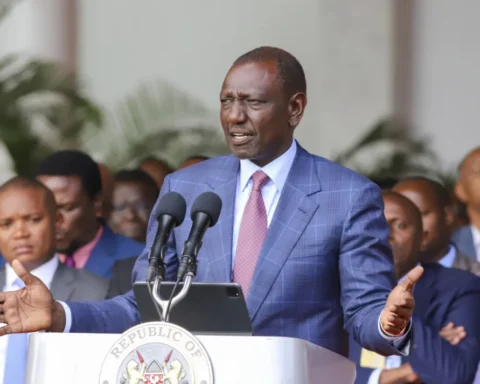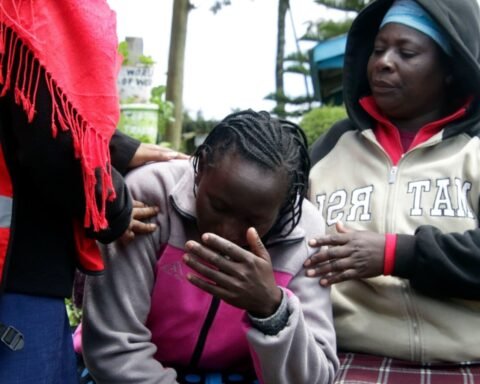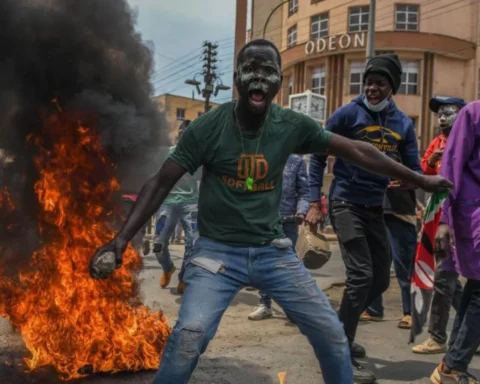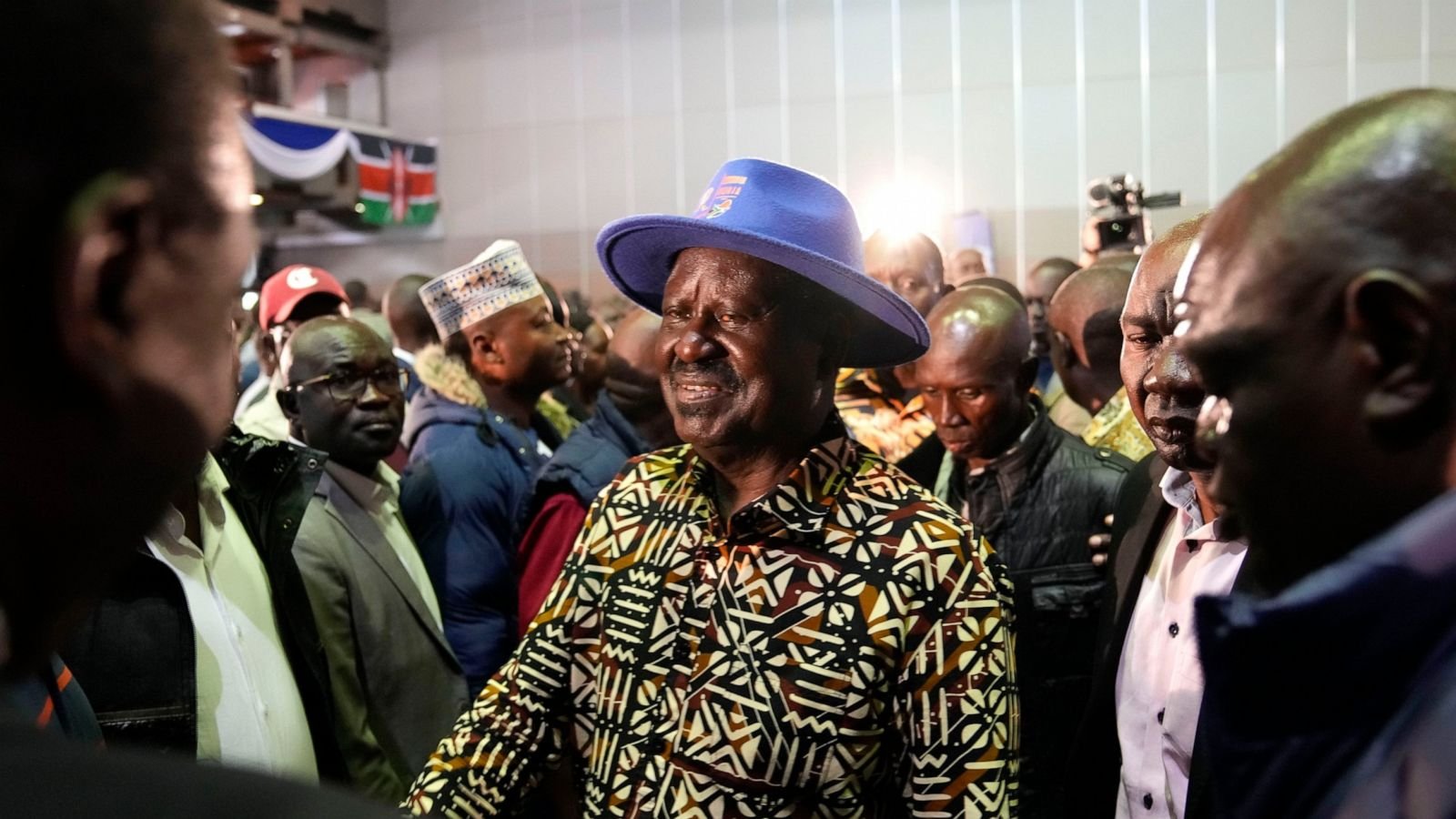Police fired gunshots and tear gas in clashes with opposition supporters as voting got under way in a re-run of Kenya’s presidential election.
Protesters barricaded the entrances to polling stations and hurled rocks at security forces in some parts of the country.
Police used tear gas to disperse angry mobs in Kibera, a slum in the capital Nairobi, while in Kisumu, Kenya’s third biggest city and an opposition stronghold, live rounds and water cannon were also fired.
August’s poll was annulled by the Supreme Court after finding illegalities and irregularities in the election process.
Kenya’s President Uhuru Kenyatta, who was re-elected by a small but comfortable majority, urged people to vote, pledging the deployment of security forces nationwide to ensure order.
But opposition leader Raila Odinga called for a boycott of the fresh poll, announcing a “resistance movement” and the establishment of a “people’s assembly” as a parallel government.
His call appears to have resonated with voters in some areas, with local media anticipating a lower turnout this time around, even by supporters of Mr Kenyetta, who is seeking a second term.
Some polling stations in opposition strongholds did not open on Thursday, while voting in Mr Kenyatta’s hometown of Gatundu and other areas was marred by heavy rains and power cuts.
Supporters of Mr Odinga, leader of the National Super Alliance (Nasa) who has lost three previous elections claiming fraud in two of them, blocked roads leading to some polling stations in Kisumu to prevent residents from voting.
Officials cited fear of attacks for the failure to deliver voting equipment to some polling stations in the region which remained locked and chained.
“So far, we have not deployed any material, and we have not deployed election officials. The reason is security,” said returning officer John Ngutai.
“We hope to be able to deploy later in the day. We hope for the best but prepare for the worst. The worst would be no election officials.”
Waiting to cast his vote in Mathare, another of the capital’s slums, David Njeru said: “It is my duty to vote.
“Last time the queue was all around the block and I waited six hours to vote, this time the people are few,” added the 26-year-old taxi driver.
After a night of heavy downpours, only 50 people stood on the boggy grass outside the Redeemed Gospel Church polling station, where more than 8,000 are registered to vote.
The ongoing dispute has bitterly divided the east African country and plunged it into its worst political crisis since 1,100 people were killed and 600,000 others forced from their homes in politically driven ethnic violence after the 2007 election.
Dozens of people have been killed during protests, mostly at the hands

